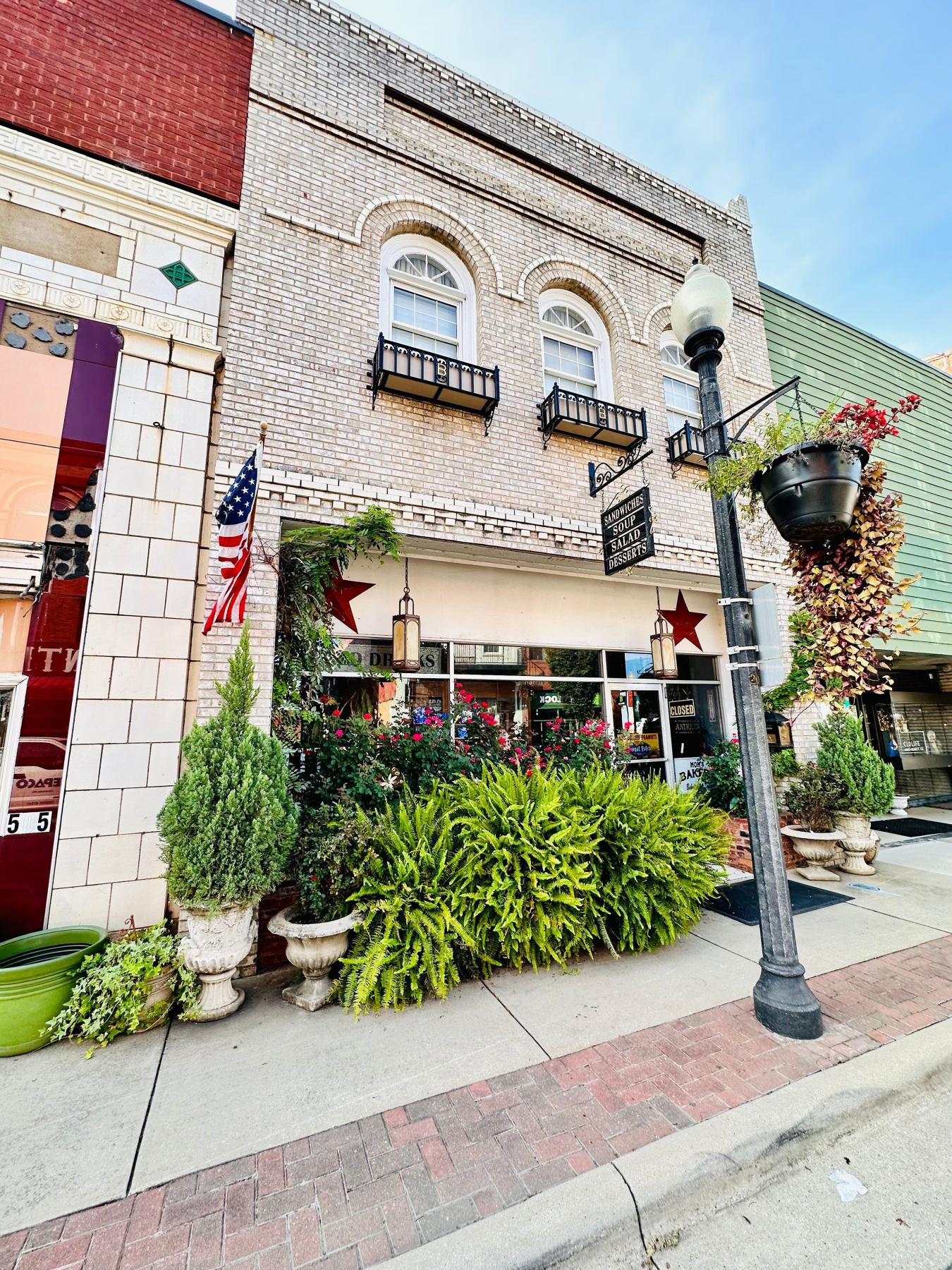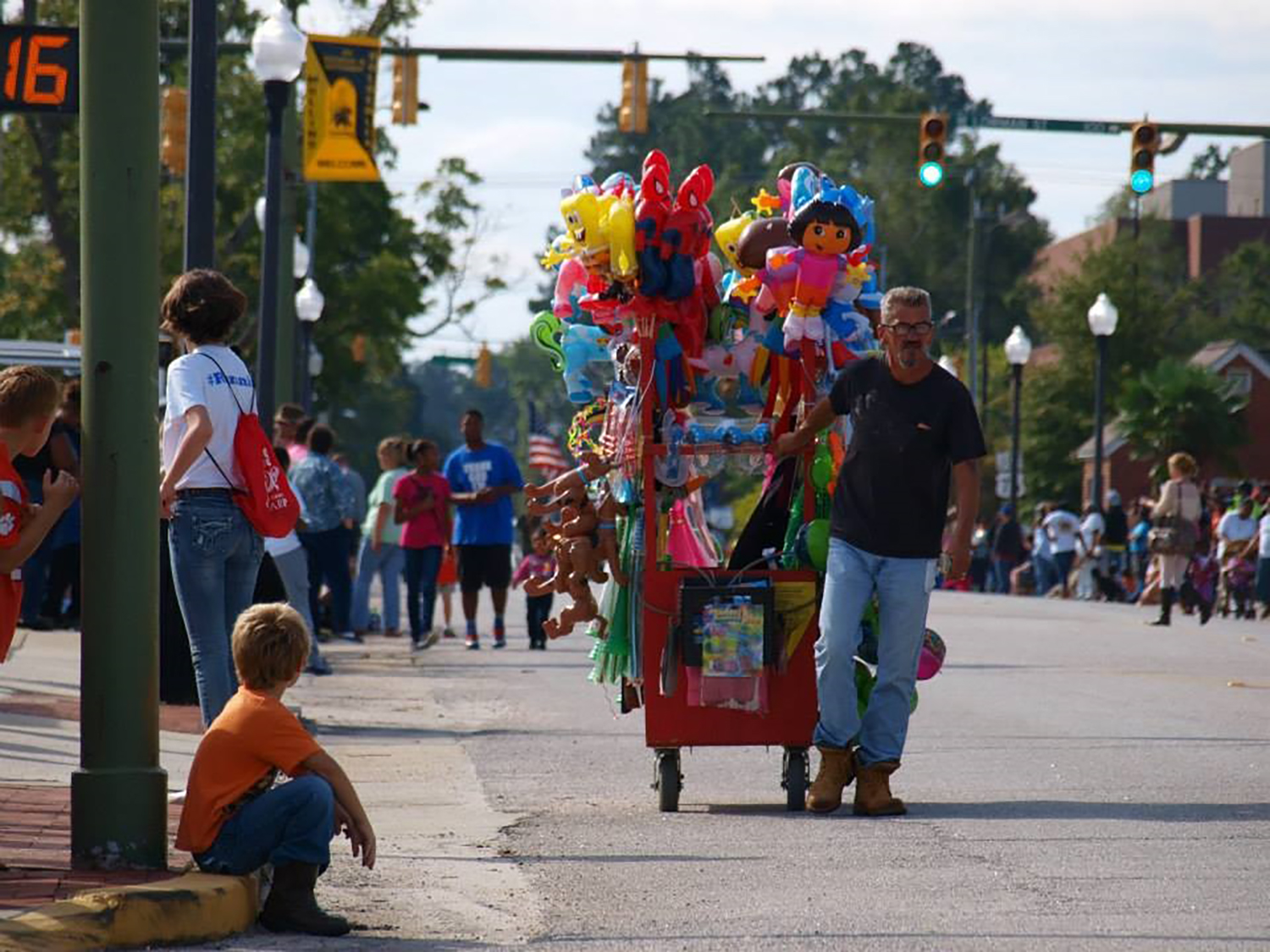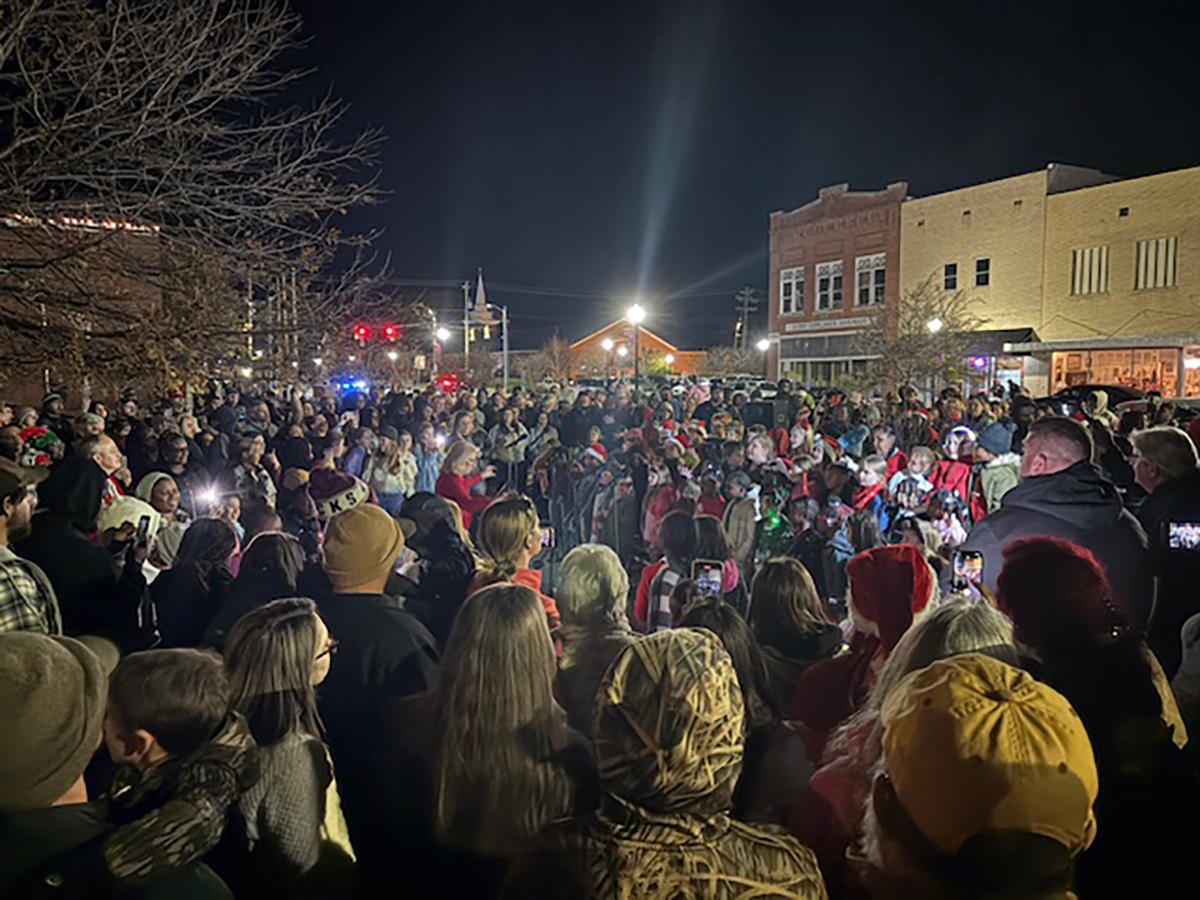Across South Carolina, many small cities and towns are incrementally transforming their downtowns through a comprehensive approach — the Main Street Approach. Historic buildings are being restored, communities are uniting and visionary plans are taking shape.
Gaffney, Mullins and Clinton, as Friends-level members of the Main Street South Carolina network, exemplify how collaboration, persistence and innovation strengthen historic commercial districts.
Gaffney: Balancing history and innovation
Gaffney is proving that downtown revitalization can harmonize history with innovation.
“Our focus is on small, consistent wins that build momentum,” said Kelly Curtis, Gaffney’s Main Street Director. “Visible change inspires interest, hope and investment in what’s ahead.”
Seasonal events like Food Truck Fridays have ignited steady foot traffic, drawing both locals and visitors downtown. Long-standing partners like the Business Generator, also known as BGEN, have further fueled Gaffney’s resurgence by supporting budding entrepreneurs with mentorship and affordable space.
Recently, a specialty candy shop and a boutique featuring personalized jewelry and clothing have found success through the program, bringing new energy downtown.
These efforts are amplified by Downtown Gaffney’s strong social media presence, which showcases offerings in the historic district. Plans for redeveloping a historic multi-story building into upper-floor apartments are also underway, positioning downtown Gaffney as a prime residential destination.

Gaffney is one of the 17 cities and towns now participating in Main Street SC at the Friends level.
Photo: City of Gaffney.
Mullins: Adapting and thriving
With a legacy of resilience, Mullins has consistently overcome challenges and embraced new opportunities. Historically known for its tobacco farming, vineyards and manufacturing, the town is now attracting a new wave of residents drawn to its strong sense of community.
Recent investments, such as the $2.5 million Old Brick Square Park and Marketplace, have revitalized public spaces. A $75,000 facade improvement program has transformed downtown storefronts, demonstrating Mullins’ ability to maximize partnerships and resources for meaningful impact.
Guided by Main Street principles, Mullins prioritizes comprehensive strategies that place community engagement at the forefront. Despite challenges like aging infrastructure, collaboration among businesses, residents and the downtown development team drives steady progress.
“Downtown Mullins is more than a location — it represents our history and culture,” said Ogie White, Mullins special projects coordinator. “By investing in its future, we’re strengthening the entire community.”

Mullins’ Main Street is home to many of the city’s community events. Photo: City of Mullins.
Clinton: Rising from adversity
In Clinton, the Main Street program has faced adversity head-on, tackling challenges such as a recent devastating fire in the downtown district, hurricane damage and shifts in city leadership. With a commitment to relationship-building and creative problem-solving, the program has made steady progress in downtown revitalization.
“We always strive to find creative ways to say ‘yes’ to opportunities,” says Jim Spry, Main Street Clinton executive director.
A notable initiative is the creation of a shared retail space that offers small businesses an affordable option of pooled resources. This model enables multiple tenants, including the Main Street program, to share rent and utilities in a space that would otherwise be too large for any one business.
Clinton is also on the cusp of several transformative projects, including a new residential complex at a prominent downtown gateway. This project will address housing shortages while enhancing the town’s appeal and positioning it for future expansion.

Downtown Clinton plays host to the city’s Christmas events. Photo: City of Clinton.
A shared vision for the future
Gaffney, Mullins and Clinton exemplify how small towns navigate the complexities of downtown revitalization. These efforts are not quick fixes but long-term commitments requiring strategic planning, dedicated leadership and active community participation.
Main Street South Carolina is a technical assistance program that empowers communities as they revitalize their historic downtowns, encouraging economic development and historic preservation. Learn more online.
Main Street SC offers several levels of participation to accommodate communities at different stages of their downtown revitalization process:
- Accredited Main Street programs meet rigorous national standards of performance annually. These high-performing programs have a proven record of success in planning, implementing and measuring results that align with the Main Street Four Point Approach.
- Classic Main Street is a more engaged level where programs have a full-time Main Street director and active volunteers. They continue growing their programs while developing partnerships to implement transformation strategies and achieve the status of an Accredited Main Street program.
- Aspiring Main Street communities complete a three-year asset-based strategic planning process to integrate the Main Street Approach into their district, which includes developing communication and action plans. After three years, these programs move into the Classic Level to continue implementing Main Street strategies.
- Friends of Main Street are learning how to use the Main Street Approach. This level provides access to Main Street SC and Main Street America resources while growing their capacity to guide downtown revitalization. While there is limited hands-on technical assistance at this level, Friends attend quarterly trainings, have access to phone consultations and connect to the statewide Main Street network.
Applications are required to join at each level and must demonstrate a commitment from both the community and the municipality for funding, support and a plan for continued implementation of the Main Street Approach.
